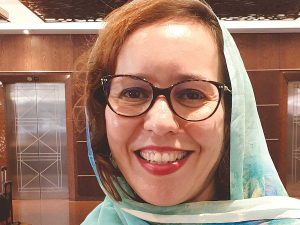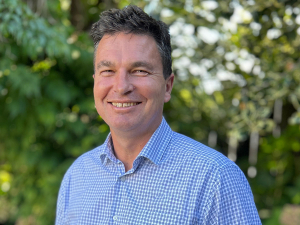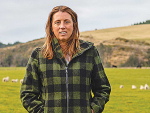The region has been supplying phosphate rock for New Zealand fertiliser for 40 years. Both Ravensdown and Ballance use the raw material.
Zoubeir heads the foundation that manages mining company OCP’s corporate social responsibility and community investment programmes in Southern Morocco.
She was in New Zealand recently to deliver the message that the southern region of Morocco – or so-called Western Sahara – is meeting international standards in its mining operations. She claims these operations are benefitting the local people with numerous programmes from education to training and health.
“We want to say to New Zealand people that we are looking to the future and working on sustainable activities and programmes to make people have a better life in the southern region,” Zoubeir told Rural News.
“We are really thankful to Ballance and Ravensdown, our clients we have been working with for more than 40 years now, for helping make this happen.”
Phosboucraa Foundation was created in 2014 and its programmes includes –to name just a few – agricultural education programmes, research and development, health centres, a university, secondary school and industrial training centre.
Phosboucraa company chairman, Maoulainine Maoulainine, says some recent commentary about phosphate rock shipments to New Zealand has at times been selective and misleading.
Morocco’s OCP Group is the largest supplier of phosphate rock, phosphoric acid and phosphate fertilisers in the world. It manages just over 70% of the world’s known reserves of rock phosphate – enough to last at least 500 years at OCP’s current production rate.
Just 2% of OCP’s managed reserves are located in the Western Sahara – where most of New Zealand’s phosphate rock comes from. This phosphate is chosen because of its suitability to New Zealand’s specific soil conditions and environmental constraints, Maoulainine says.
‘Western Sahara’s’ phosphate rock has physical properties that make fertiliser granules more stable so they don’t break down or powder. This makes it easier to transport and apply accurately, thus reducing waste.
OCP’s operations in the region are run by Phosboucraa. The company takes no dividends from Phosboucraa with all profits reinvested in the region to maintain and expand operations and to support the local community.
‘Western Sahara’ is classified by the United Nations as a non-self-governing territory – one of 17 worldwide, including Tokelau which is administered by New Zealand.
The United Nations has developed a doctrine, which allows and encourages trade and investment in non-self-governing territories to promote economic development and provide opportunity to the local population.
“New Zealand, through companies such as Ravensdown and Ballance Agri-Nutrients, should be proud to be associated with the economic development of the region …. which have direct positive impact on the local population,” says Maoulainine.
“OCP and Phosboucraa have worked rigorously to ensure that all operations and activities comply and exceed all relevant standards, including those established by the United Nations.”
Phosboucraa is the largest private employer in Western Sahara, employing almost 2,200 people – 75% of whom are locals.











